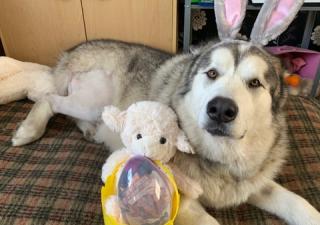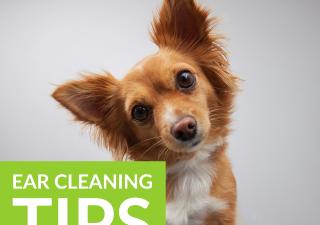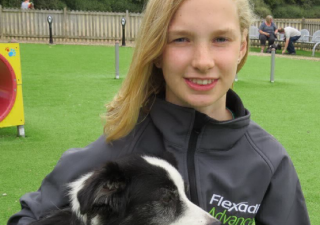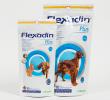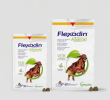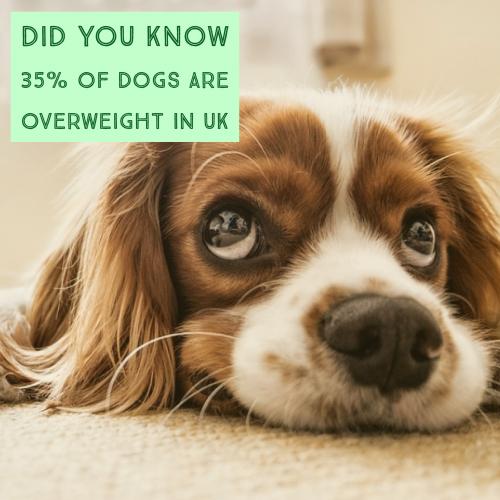
Overweight pet and how to help
Back to overviewA recent study carried out by the British Veterinary Association has stated that Vets consider obesity to be the number one welfare concern for UK pets and the figures below are a good indication as to why!
-
Approximately 35% of all dogs are confirmed as overweight, that equates to around 2.9 million overweight canines in the UK
-
Approximately 25% of all cats are confirmed as overweight, that equates to around 3 million overweight felines in the UK
We all like to see our pets eat well and to spoil them, that’s part of the enjoyment of having them right? But what if you were told that your dog or cat was overweight? And that their lives were very likely to be shortened as a result? Most of us would be mortified to think that our acts of kindness could actually be harming our furry friends.
Rabbits are another of the nation’s favourite pet that can suffer from obesity. Additional weight in this species can have very serious health implications from myiasis (flystrike leading to maggots) because the rabbit is unable to keep itself clean due to excess weight, to dental disease because his/her teeth are not wearing properly due to incorrect food stuffs being fed (with rabbits in particular intentional weight loss needs to be very closely monitored and only undertaken with the input of your Vet or Vet Nurse).
Did you know that just like us, overweight pets are far more prone to disease processes such as diabetes, heart disease, pancreatitis and joint and mobility issues? To avoid or help your overweight pet, here are 3 top tips that might help:
1. Consult your Vet or Vet Nurse
The first thing to do is to book an appointment with your Vet or Vet Nurse in order to assess your pets general health, and to detect or rule out any underlying medical conditions that could be attributing to your pets weight gain. This will also give you an idea of how much weight your pet needs to lose in order to fall within a healthy weight bracket for their age and breed.
Your Vet or Vet Nurse will be able to advise you on how to manage and reduce your pets’ diet whilst increasing their exercise levels safely and in accordance with their individual needs.
2. A balanced diet
Feeding your pet a good quality, complete and balanced diet at the recommended daily amounts can increase your pets’ lifespan and hopefully keep at bay some of the above mentioned conditions. So keeping your pet at their optimum weight will help to keep them in tiptop condition and hopefully with us for a long time.
When feeding your pet, remember to feed for the weight that you want them to be NOT the weight that they currently are – though if your pet is overweight by more than a couple of kilograms you will need to reduce the food intake incrementally, so that the weight loss is not too dramatic and potentially dangerous. Please take advice from your Vet or Vet Nurse as to how best to reduce the food intake for your own pet, as a 2kg loss in a large breed overweight dog is less significant than the same loss in an overweight cat for instance.
When selecting a diet (if you are advised to do so) opt for a ‘light’ diet which is complete – this means a diet that contains all your pets’ daily nutritional requirements but with a lower calorie value, as this will help to aid weight loss. Do not try and get your pet to lose weight too quickly as this can be dangerous, especially in cats who can suffer from a condition known as hepatic lipidosis if their food is suddenly and drastically limited.
Once your pet has reached their target weight (well done!) then continue to feed for that weight, do not reduce the food any further – this is classed as maintenance feeding. You can continue to feed your pet on the ‘light’ diet at the maintenance weight as specified on the feeding guide (usually on the back of the packaging).
3. Increase exercise levels
Try to increase your pets exercise levels as they lose weight, this is important for a healthy lifestyle and their general wellbeing. There are many interactive dog toys in the market which can not only help your cat or dog stay energetic, but also help mental stimulation to help stay happy and alert.
If you’re feeding dry food then one tip is to keep some of the daily allowance aside and use this as top-up ‘treats’ in the interactive toys or when out on walks etc. The idea of this is that neither you nor your pet will be deprived of those rewarding interactions, but also that the ‘treats’ are still healthy and within your pets daily allowance.
Tackling your pets weight may feel like you have a mountain to climb, but taking it day by day with a goal at the end makes it much more achievable. You will start to notice the difference quite quickly, in that a once sluggish dog or cat is likely to become far more active once they aren’t carrying the excess weight around with them anymore.
Tips & Tricks
- Easter is a wonderful time of year with so many chocolate Easter eggs in abundance, but make sure you do not let your pet near them.
- With Brexit deal still in negotiation and a possibility of a ‘no deal’ scenario, there are no concrete answers just yet – but to help you become more informed, here is our Q&A on what we can find so far.
- Build-up of wax and debris in your pet's ear canals can lead to discomfort and irritation. Cleaning your pet’s ears can have a lot of benefits and here are some tips to get you started!
- We had a great time catching up with Mariann Bayliss, our sponsored agility handler last week. We met her competing dog, Ila, and her 5 month old puppy Coral.

